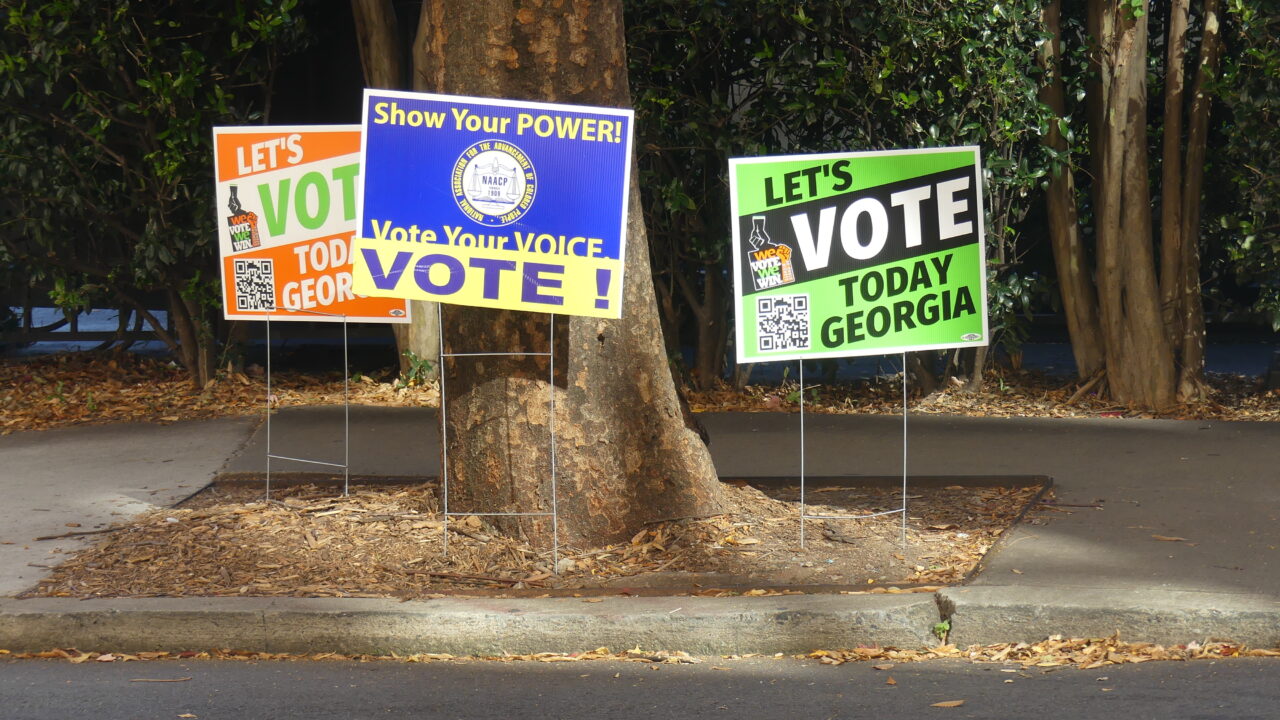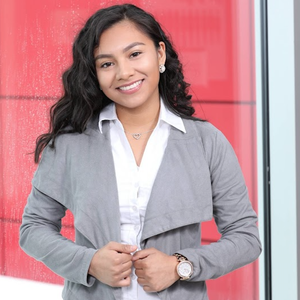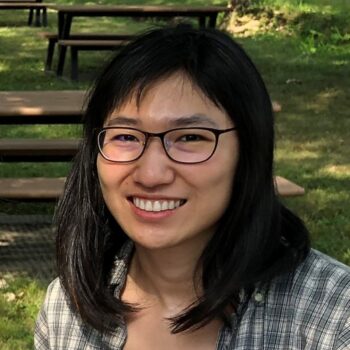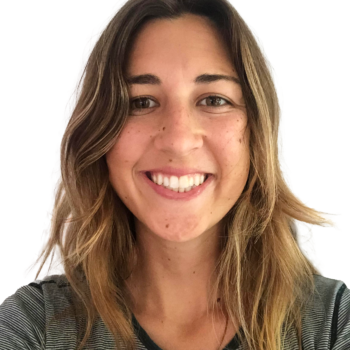This interview is part of a series of articles from The Forge and New America spotlighting successful stories of co-governance models across rural, urban, and tribal communities.
Collaborative governance — or “co-governance” — offers a model for shifting power to ordinary people and re-building their trust in government. Co-governance models break down the boundaries between people inside and outside government, allowing community residents and elected officials to work together to design policy and share decision-making power. Cities around the world are experimenting with new forms of co-governance, from New York City’s participatory budgeting process to Paris’s adoption of a permanent Citizen Assembly. More than a one-off transaction or call for public input, successful models of co-governance empower everyday people to participate in the political process in an ongoing way. Co-governance has the potential to revitalize civic engagement, create more responsive and equitable structures for governing, and build channels for Black, brown, rural, and tribal communities to impact policy-making.
Still, co-governance models are not without challenges. The hierarchical and ineffective nature of our current governing structure is difficult to transform. Effective collaboration between communities and politicians requires building lasting relationships that overcome deep distrust in government. So far, successful models of co-governance tend to be local and community-specific — making it critical that we share stories of success and brainstorm ways to scale.
New America’s Jessica Tang, Grace Levin, and Lizbeth Lucero spoke with Deborah Scott, CEO of Georgia STAND-UP, a “think and act tank” for working families that is part of the PowerSwitch Action network, and its 501(c)(4) organization, We Vote. We Win. Scott is a lifelong advocate of economic inclusion, community empowerment, and progressive civic engagement. In this interview, which has been edited and condensed, Scott discusses how Georgia STAND-UP builds civic power, educates voters, and develops leaders.
Can you talk about how Georgia STAND-UP builds civic power, particularly among communities that have been disproportionately impacted by systemic disparities?
Georgia STAND-UP aims to equalize the playing field by giving community members the tools they need to gain access to power. We provide the civic infrastructure to compensate for the lack of civic education. Our literature aims to provide information covering key questions, such as: What is the role of the Governor’s office? What responsibilities does the Secretary of State have? We do this throughout the entire ballot so that people really know who and what is on the ballot each year.
We have learned that a lot of people do not vote all the way down the ballot because they feel uninformed about the races and offices listed on the ballot. We are aiming to eliminate this barrier by giving people information early in the process so they feel confident at the polling booth.
When we engage with our community members and design outreach strategies, we really focus on two different key constituents and think about their interests and needs. The first is someone like Mrs. Jackson, who may be a grandmother now in a caregiving role raising her grandchild and who may not be as engaged on social media. This older Black woman is the base of the progressive voters here in Georgia. The other key constituent we focus on is someone like Ms. Johnson, a young mother who is trying to get an education, seeking access to childcare or a better job. We figured if we center our work around these women who are between ages 18 and 80 and the communities that they represent, we will reach the core of who we are trying to impact, the issues they care about, and the resources they need. It starts with voter education on where the election is, when the election is taking place, and why it’s important to vote now and in the long run.
We connect kitchen table issues to what’s at stake on the ballot and what’s happening in the economy. We try to translate policies in a way that is relatable and concrete. In our work, we really center people and build trust by acknowledging the work that’s already happening in the community. So our first call starts with a thank you and a check-in, asking residents, “How are you doing? How are things at home? Do you need any mutual aid support?” And then we talk about everyday issues that are affecting them. If we show up as an outside organization, instead of neighbors, we’ll lose their interest. At STAND-UP, we strengthen the civic infrastructure of the trusted leaders that are already in the community.
We also run a leadership development program, which is our policy institute, where we work hand-in-hand with community leaders and activists already embedded in the community, who might not realize their own power to effect change. At our policy institute, we usually have 20 students in a class to discuss topics on race, class, and politics in the southern region. We focus on how development decisions get made and why we need community leaders involved throughout the decision-making process. That way, when we advocate to city and state elected officials, our community representatives are well-informed about what’s happening at different levels of government.
How do you discuss kitchen topic issues at the policy level?
Because we’re located in the Bible Belt, our kitchen table conversations will sometimes vary to reflect the makeup of our residents. For instance, when we talk about reproductive justice, we might not use the same framing that other communities use — however, we know our community members can all agree on the need to access safe and affordable healthcare. This election season, we have really been focused on Medicaid expansion. In our state, the Governor gets to decide whether we expand Medicaid or not, which has made it even more critical for us to do voter outreach.
This campaign season, we also produced an Orange Book, which informs our residents where to get free voter IDs. Just like how the Negro Motorist Green Book provided travelers with information on which businesses would serve them during the Jim Crow era, our Orange Book provides residents the names of offices and people they can contact to access a free ID to vote in this midterm election.
Our other literature includes information on where people, including those with a criminal record, can go to register to vote, request an absentee ballot, or get free rides to the polls. Most importantly, we’re not telling them who to vote for but are showing them what’s at stake and why it’s worth waiting in line for six, seven, eight, or nine hours. The state of our democracy is too vulnerable not to show up to the polls.
How do you build trust in communities given the high level of distrust in government?
Trust is important in all of this, especially because we’re based in a state that suppresses votes. Having organizations on the ground that are already trusted by communities is critical. We are a part of a network called ProGeorgia, which is part of the State Voices Family and comprises about 40 different nonprofits. In this network, we come together and decide how to most effectively allocate time for voter registration, phone banking, canvassing, social media outreach, newsletter, and rallying. We share information and find ways to collaborate. We continuously support each other by organizing joint fundraising events and sharing data and tools, such as the Voter Action Network, to track our outreach efforts.
In the city of Atlanta, we’ve had 40 years of Black elected officials. They understand the importance of partnering with nonprofits like ours. This administration has really opened up its doors to collaborate on voter registration. They’re welcoming us to do voter registration at the recreation centers and at city hall. This is especially important in our current state of democracy. We have to work together to mobilize change.
Do you think Georgia STAND-UP’s model could be replicated in different parts of the county?
One of the great things about Georgia STAND-UP is that we are a “think and act tank” for working communities and organizations. To that end, we use lessons from our work to teach others how to replicate and apply them in their communities. Not only does this build our network, but it grows the movement.
We have groups coming down all the time to learn how to canvass, phone bank, run a policy institute or leadership development program, and how to show up for their communities. Launching this kind of work from the ground up really starts with hiring the right people to run the programs and training staff and volunteers to understand the value of building trust with community members.
I have also learned that we need to empower young people, particularly those ages 18 to 35. We have to be open to new techniques and new ways of thinking about organizing by letting young folks lead in the spaces that they know best. First, we have to teach young people the value of organizing. We use the Civil Right Movement to highlight how strategic action and organizing can lead to change. Rosa Parks, for example, didn’t just happen to be tired one day and decide to sit down in the “white” section of the bus. As Secretary of the Montgomery chapter of the NAACP, she pursued a strategic act of civil disobedience that she had learned at the Highlander Folk School, now known as the Highlander Research and Education Center.
Because of the role that Georgia played in this last election and the way in which we turned out, people are really curious about what we were able to do here. It was really about organizations coming together, registering people to vote, getting them out to vote, registering more people to vote, getting them active, and getting them engaged, long-term. We focus on strategy, organizing, mobilizing, and activism, and then we rinse and repeat.
Can you talk more about the Policy Institute for Civic Leadership Work?
Over the last 18 years, we’ve helped train over 400 leaders with thought leaders in academic institutions such as the Atlanta University Center, Georgia Tech, Georgia State, and Emory University. They teach in a way that is more community-friendly by incorporating more storytelling and information sharing. We discuss issues and specific campaigns that are happening within the community, and we try to embed those into the Policy Institute to brainstorm project ideas.
Currently, we’re focusing on more grassroots efforts related to issues that are happening in real-time. We are currently planning ahead for the 2026 FIFA World Cup that is scheduled to take place in Atlanta. As with the Olympics in Atlanta in 1996, we anticipate a lot of displaced Atlantans from neighborhoods and public housing as well as the illegal arrest of thousands more if we don’t prepare accordingly. The City of Atlanta has historically disinvested in the infrastructure of Black communities. For example, we are currently finishing up a campaign that has been going on for ten years in Peoplestown, which has continuously experienced flooding due to inadequate sewer lines and highway expansion. The city attempted to redevelop the infrastructure by building a retention pond to protect the neighborhood from massive floods, but it failed to tell people they would be displaced in the process. As a result, twenty-four families moved away, with less than $300,000 paid for their homes. Ten families resisted this inequitable process and refused to move. We have actively supported their position to stay in their homes. Finally, under Mayor Dickens, some cases have been settled, with two families receiving $1.9 million and one family receiving $1.4 million in litigation settlements.
Our organization is not a transactional organization. One thing I learned is that if you’re not at the table, you’re on the menu. Our efforts are going to teach our communities how to eat, how to bring food to the menu, to the buffet, and how to hold open the door and bring others along.
How are you working with different stakeholders?
One of the best examples I can give is our Clayton County Transit campaign. Clayton County is home to one of the busiest airports in the world and houses a large population of working-class families. When the City of Atlanta took down the housing projects, some of the only affordable housing remaining was located in Clayton County; we needed to new push for new forms of transportation. In 2014, we formed a community coalition to expand our city bus system. Over the course of a couple of years, we grew the campaign beyond community residents because, as we know, multiple stakeholders benefit from increased public transportation. We made the campaign appeal to the city government, homeowners, and businesses. Sure enough, the ballot measure passed in November. Within three months, we rode that first bus and helped install new bus stops throughout the county.
Specifically for NGOs and nonprofits, I think their role is to work with government in partnership but also to hold government accountable. We can’t alienate either group entirely. We have to continue working cooperatively with public agencies, nonprofit organizations, and other entities, even when there’s not a big fight, in pursuit of a collaborative model.
Is there anything else that we’re leaving out that you want to make sure we include in this piece?
Saving democracy is hard, but it’s necessary and needs to be funded. We have to pay people for the work — this is not a volunteer campaign. The more money we raise, the better wages we can offer. In this sense, democracy is not free.
I’m also very excited about this next generation of advocates. We have already seen how this generation organizes electronically and through social media, and the reach we can generate. I believe in our young people and at some point, I can retire. In the meantime, I still have work to do.
We would like to thank Lindsay Zafir, Mark Schmitt, Maresa Strano, Jessica Tang, and Grace Levin for their incredibly helpful comments and editing support. This would not have been possible without them.



